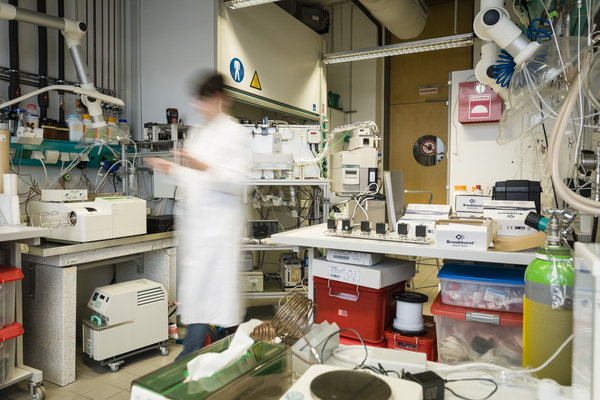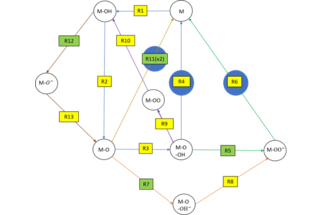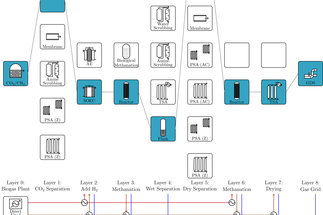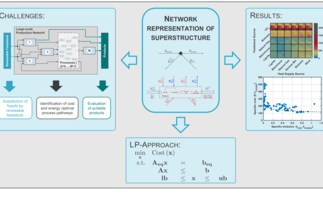In December 2019, the European Council endorsed the objective of making the EU climate-neutral by 2050. Because of this transformation, large amounts of low-cost, surplus electrical energy (e.g. from wind farms and photovoltaics) are expected to become available periodically, depending on weather conditions. To assure efficient integration of this "green" energy, the existing infrastructures for energy supply must be extended by so-called Power-to-X (P2X) processes. However, the multitude of possible process pathways and target products (X) is often challenging to oversee and requires novel methods for process synthesis and process analysis. Moreover, such processes must be operated not only at a fixed nominal load, but at a wide range of different partial loads (load flexibility). The PSE group addresses these aspects to the production of gaseous target molecules methane (CH
4) and syngas (H
2/CO).
[more]



